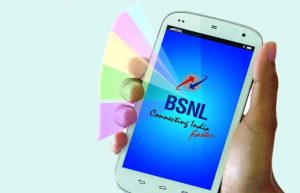We all know that ‘demonetization’ has been the buzz word on every single day of the past one month. Amid all the cash issues, the digital payment market has seen a huge increase in the number of users. To further help the common man to handle this situation, a more user friendly and simple version of Unstructured Supplementary Service Data (USSD) to be used on feature mobile phones for making cashless payments will be rolled out in the next 15 days.
As per reports, a panel which consists of the chief ministers of different political parties on board has been formed to examine and promote the use of digital payment systems across the country. The committee members met with RBI and heads of various banks in Mumbai. The panel is also working out ways to achieve inter-operability of unified payment interface (UPI) of various banks. This will enable account holders to use their banks’ UPI with subscribers of other banks’ UPI for making and receiving cashless payments.
Andhra Pradesh Chief Minister Chandrababu Naidu who is the Convener of the panel said, “There was an issue of inter-operatibiity of UPI of various banks in today’s meeting. We are working on inter-operatibilty of UPI of different banks.” Naidu also said that Aadhaar enabled payment system is the easiest method for moving toward digital economy. Under the Aadhaar enabled payment system, the consumer can make payment using their 12 digit unique identity number with biometric authentication bypassing the hassles of debit/credit cards, pins and passwords required for a transaction.
NCPI (National Payments Corporation of India) which is the umbrella organization for all retail payment systems in India is already working to make USSD (*99#) very simple, convenient, robust and to link it with UPI (Unified Payment Interface). So in another 15-20 days, we will have a very new version of USSD with many strong and robust as well as easy-to-handle features. At present there are about 400 million feature mobile handset users in the country. The move will boost the digital transaction in a big way particularly in rural areas where the internet and smart phones are just being introduced. This will enable more Indian citizens to have unrestricted access to e-payment services.





